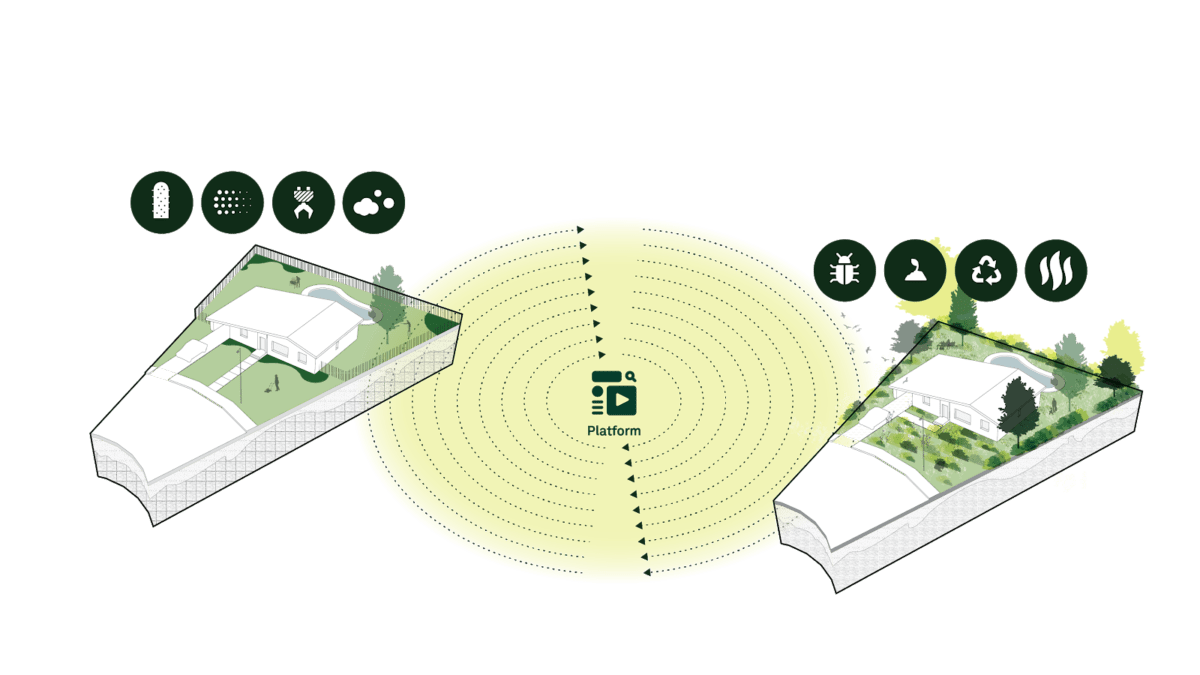Reconciliation with nature starts in our yards
Sometimes, to discover opportunities to change our surroundings for the better, it’s just a question of reassessing what we are used to, looking at the defaults, and then finding what’s actually needed and appropriate to the current context and needs. The Nouveaux voisins / New Neighbors project does exactly that, by looking at something we barely notice, private yards, and finding ways of re-inventing them. They want to facilitate socio-ecological transitions and community-based climate action with a platform that brings together functions that are “pedagogical, actionable, evaluational, financial, and regulatory.”
In the United States, [lawns are] the largest irrigated crop. Transforming the culture of perfectly manicured lawns therefore represents an enormous opportunity for collective climate action. […]
Beyond the development of public policies, legislative strategies and financial incentives, it is essential to increase the capacity for on-the-ground action among individuals and communities through the development of ecological gardening on residential yards.

As citizens, it’s often hard to grasp what small-scale practices might accomplish, and even harder to see how they might collectively have a larger impact. Such projects, which connects personal local action with a broader movement that can be measured and analyses can bridge that gap and not only have tangible results on the ground, but also in our individual understanding of how we can act collectively.
It is about establishing the foundations of a movement that proposes a new form of cohabitation between Nature and us, one yard at a time, across urban, suburban and rural divides.
The article linked above presents some of the research being done to structure the project, how it can be effective, and the early direction such a platform might take and what it might look like. They have identified five categories of action, which are: Informing, transforming, mapping & measuring, modelling & visualizing, and coordinating & influencing.
It’s a great example of acting locally while thinking and organizing globally. And thinking of the small scale while having the goal of impacting at the larger scale.
